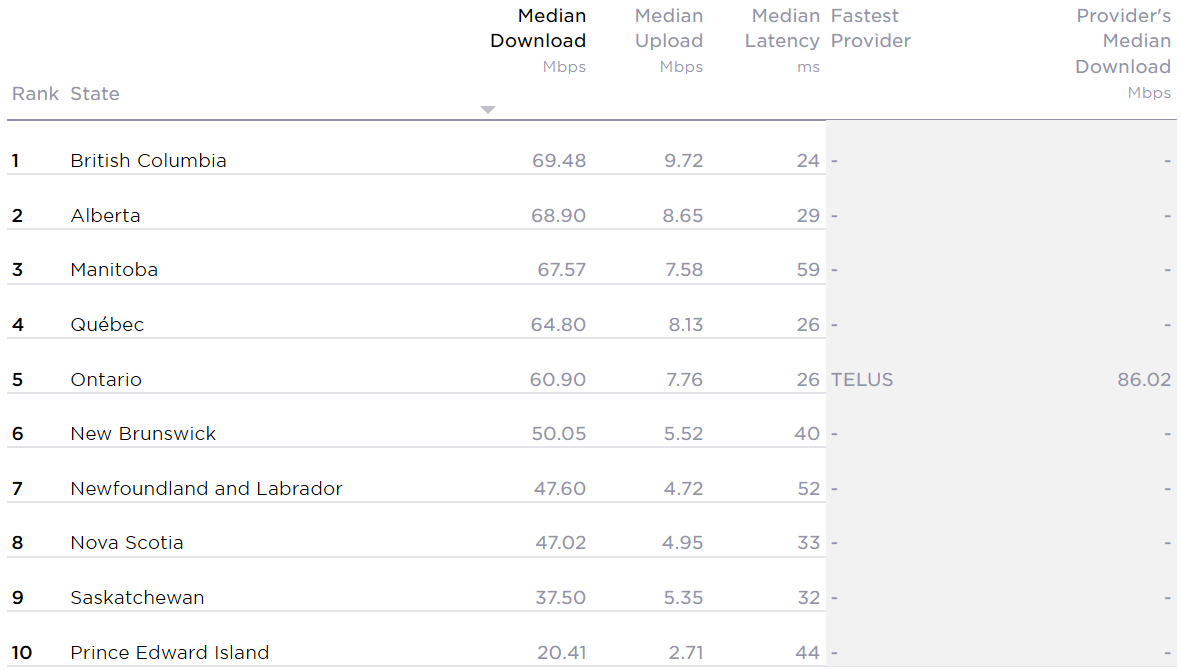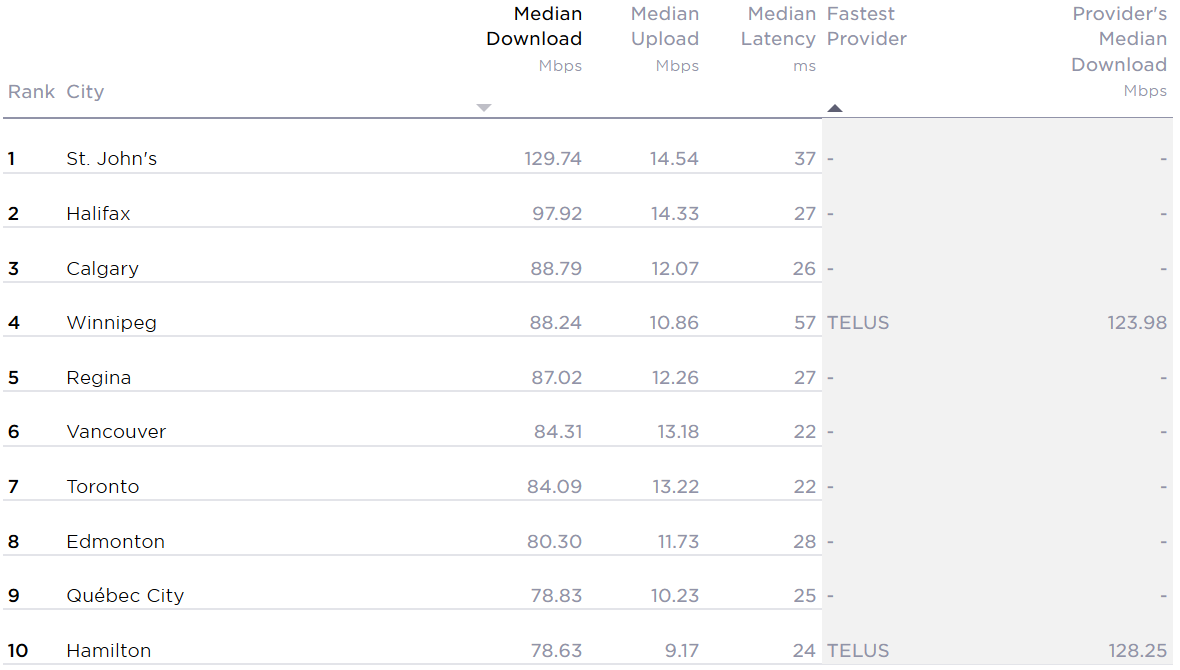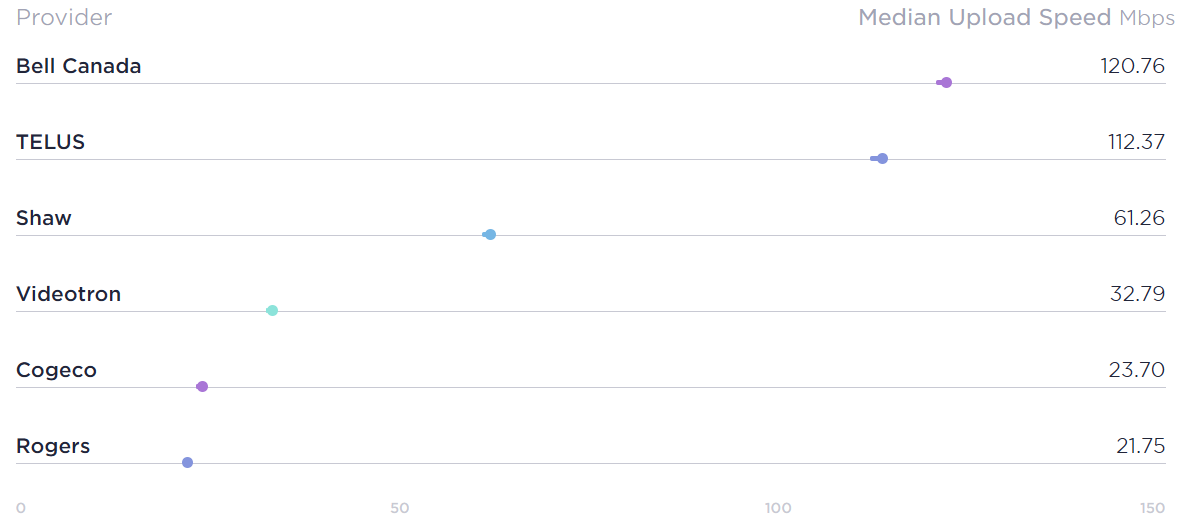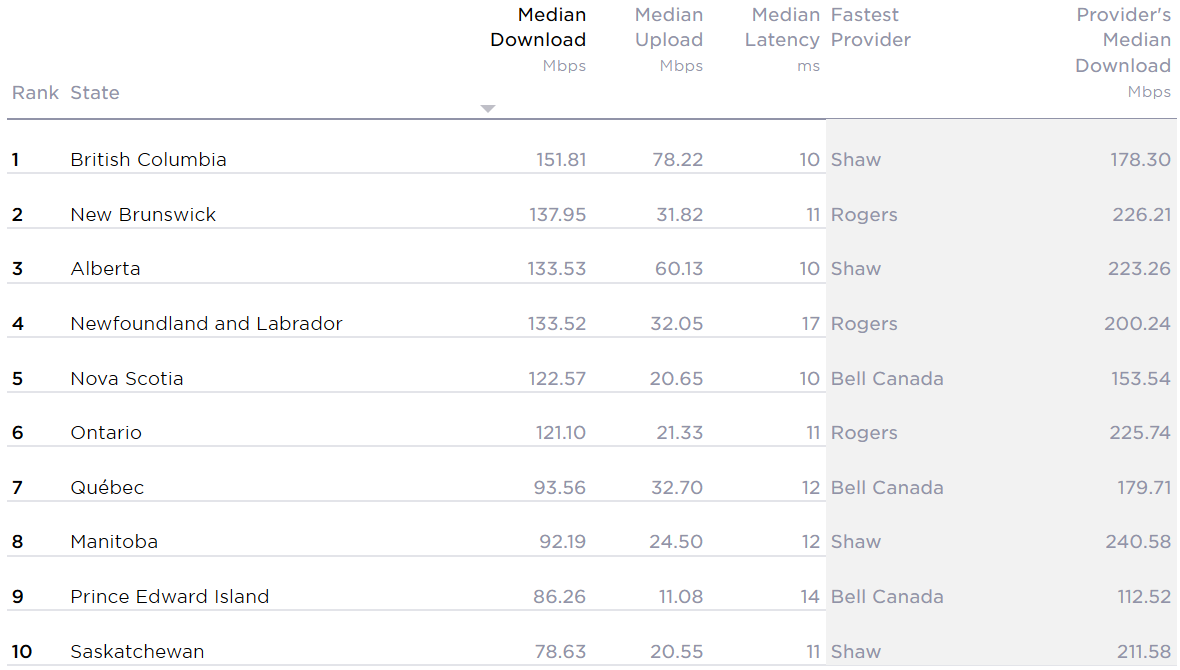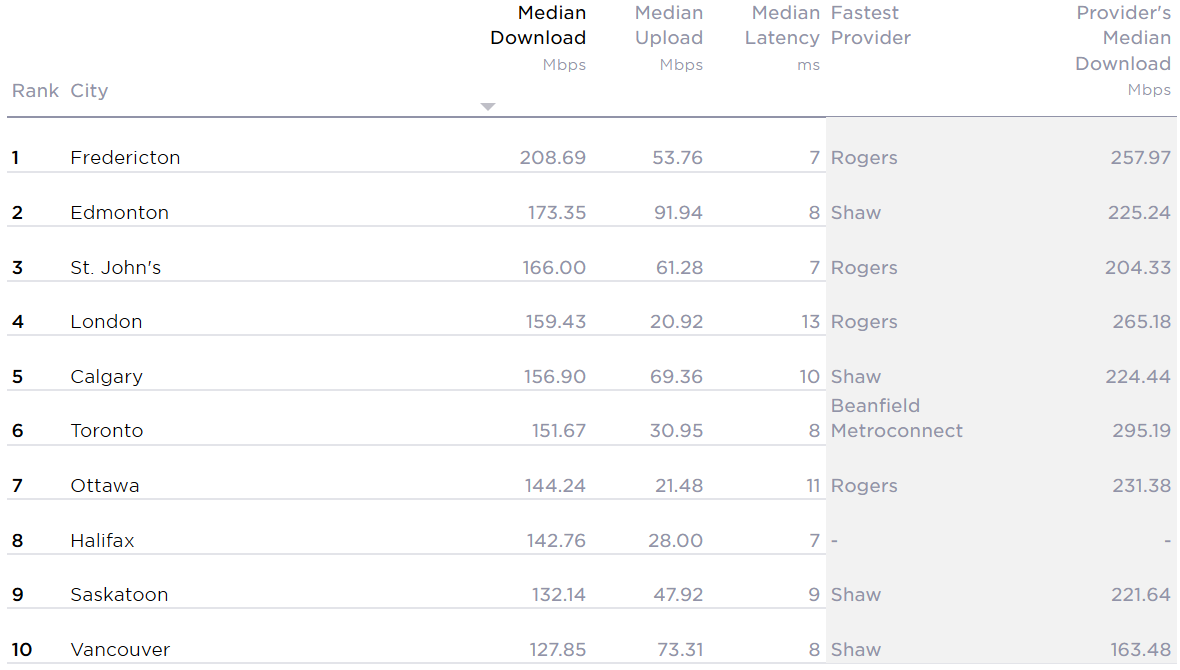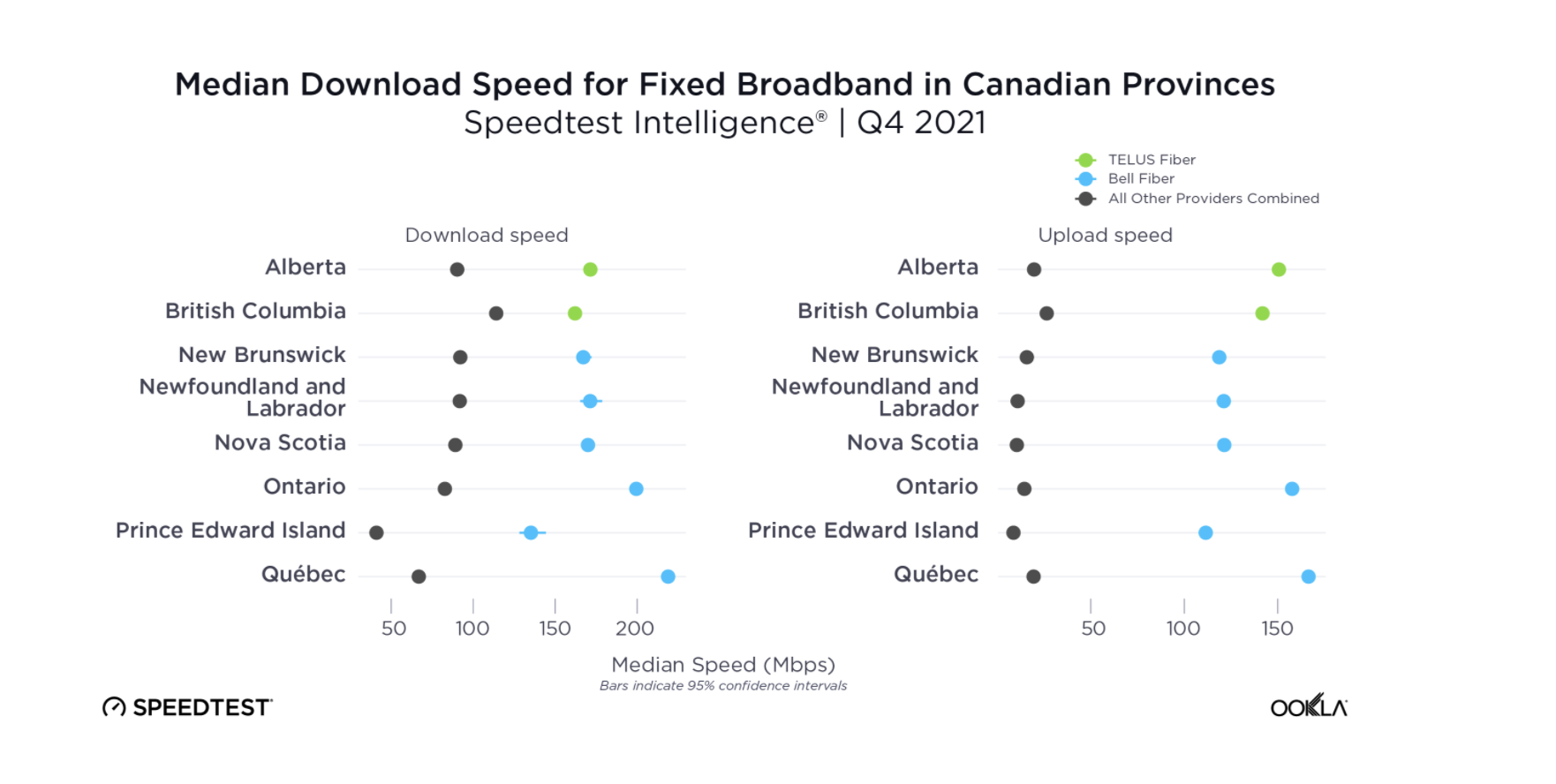Ookla, the company behind the popular Speedtest app, published its Q3 2022 report on speeds in Canada and other regions. Per the report, Telus topped median download speeds for mobile, while Rogers claimed the top spot for fixed broadband.
It’s worth noting that the data in the reports comes from Speedtest.
Starting with mobile speeds, Ookla’s report lists Telus as the fastest, with a median download speed of 76.03Mbps. Bell was a close second at 73.30Mbps, while Rogers trailed with a median 59.86Mbps. With uploads, the story flips — Rogers leads with a median 9.19Mbps, followed by Telus and Bell and 7.56 and 7Mbps, respectively.
Ookla’s report also includes a ‘Multi-Server Latency’ measurement. A help page on the Speedtest website notes that multi-server latency is intended to represent the latency users can expect when a network isn’t under heavy load. According to Ookla, Rogers lead the results for mobile with a media multi-server latency of 43ms, followed by Telus at 45 and Bell at 46.
Rogers also topped Ookla’s consistency test with a score of 79.9 percent. However, Telus and Bell were close behind at 78.5 and 77.8 percent, respectively.
Ookla’s report included details about 5G performance as well. Bell topped this with the highest median download speed of 144.73Mbps, followed by Telus at 136.29Mbps and Rogers at 97.55Mbps.
Looking at regional details, B.C. posted the highest median download speed at 69.48Mbps, followed by Alberta and Manitoba. Zooming into Canada’s most populous cities, St. John’s has the highest median download at 129.74Mbps, followed by Halifax and Calgary.
You can view the full report here.
Fixed broadband – Rogers tops download speeds
Moving onto fixed broadband, Rogers leads the way with a median download speed of 223.89Mbps. Shaw is the only other provider to crack 200Mbps with a median 206.05Mbps download. Bell claims third at 157.05Mbps.
Upload speed tells a different story, with Rogers landing in sixth with a median 21.75Mbps. Bell tops this category with 120.76Mbps median upload, followed by Telus at 112.37Mbps. Shaw takes third at 61.26Mbps.
Similarly, Bell, Telus and Shaw take the top three spots for multi-server latency at 11, 12, and 20ms, respectively. Rogers lands in fifth at 21ms.
Rogers landed back at the top of the chart with an 89.7 percent consistency score, followed by Shaw at 87.3 percent and Cogeco at 86.1 percent.
For fixed broadband, B.C. once again topped the regional chart with a median 151.81Mbps download speed. New Brunswick and Alberta round out the top three. For cities, Fredericton topped at 208.69Mbps, followed by Edmonton and St. John’s.
You can view the full report here.
Ookla’s Q2 2022 results can be found here.





